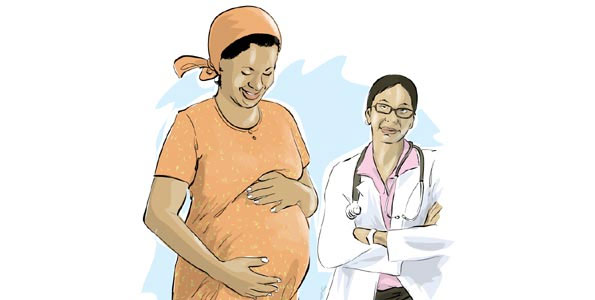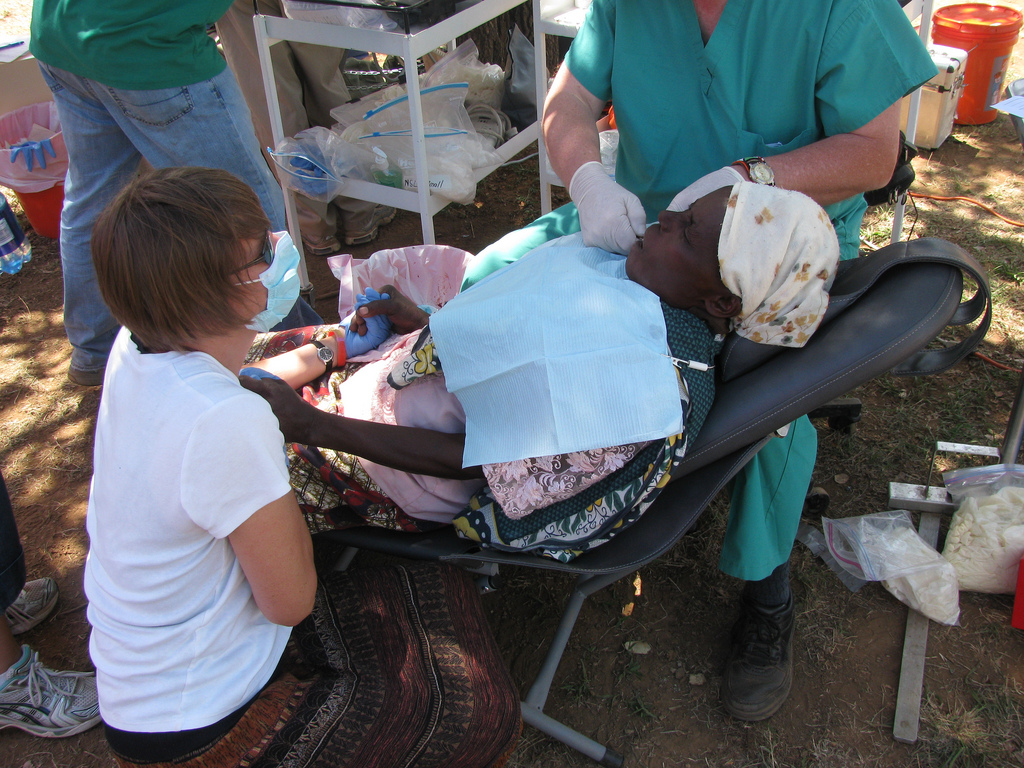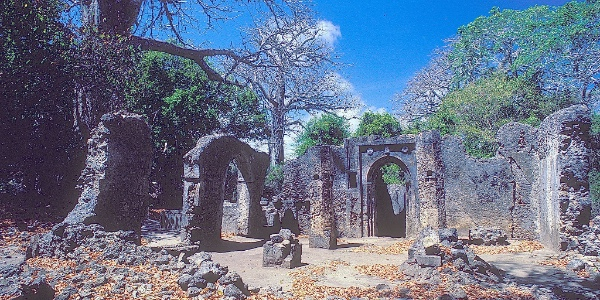 Visit Elective Africa website Visit Elective Africa website
|


|
|
|
| Elective Africa Monthly Newsletter |
 |
|
Welcome to our 3rd issue touching on insights on healthcare placements in Africa. Jumwa who is one among many women from Kenya affected by fistula, an abnormal anastomosis which is preventable narrates her agonizing 50 years with the condition. Hope is however not lost, we outline some of the solutions and approaches that can be put in place to help alleviate the situation. Wondering on why and where to take your pre-health hospital internship this summer? In this months success story, get a taste of what it feels like to be on a premedical internship abroad as narrated by Chad Cain; a premed from Pacific Lutheran University, US. Summer is a good time for in-depth work demonstrating your motivation and interest in your chosen field in medicine. Explore why you should take a summer pre-health internship with Elective Africa and discover the wonders of Watamu in Malindi, Coastal Kenya. Do you have a healthcare topic of interest? Talk to us to guest write for our readers and let us share together. Back to top |
| The State of Obstetric Fistula in Kenya |
 |
|
“At the bloom of her youth, exactly 50 years ago, Jumwa Kabibu Kai, a resident of Kidutani, a small village in Chonyi, Kilifi County, Kenya, was psychologically prepared for the birth of her second child. As she went into labour, Jumwa was all alone in her small hut crying her heart out but no one was in sight. This is because her nearest neighbor lived three kilometers away. Kidutani is generally a marginalized area with poor infrastructure, including accessibility to a health facility. Jumwa found relieve walking around her compound because in her heart she knew her neighbors would finally either hear her or come visiting. This went on for three days when her sister came visiting. Immediately, her sister mobilized a few neighbors who rushed Jumwa to hospital. Jumwa could not comprehend what her doctor was explaining to her hours after the delivery “but something was definitely wrong”, she recalls. She lost her baby in the process. “I returned home after a day at the hospital, extremely disturbed by the loss of my child. Then almost immediately I began passing urine uncontrollably,” she narrates. “I didn’t take it very seriously because I thought it was something normal. In any case, there were other women in the village with the same condition,” she adds. This according to her was “the beginning of 50 years of a long nightmare.” Unknown to Jumwa, she had developed obstetric fistula – a hole between the birth canal and bladder or rectum that is usually caused by prolonged obstructed labour. It is both preventable and treatable, but fistula plagues the lives of thousands of women in Kenya every year, leaving them incontinent for urine and/or stool. “I knew a bad spell was cast on me,” she states. “How can this be happening to me? I remember the bad smell, the wetness, the shame and worst of all the disappointment I saw in my family. The feeling was all too awful,” she adds. After a while, and out of desperation, Jumwa began to seek help - any help from traditional healers, local dispensaries and religious groups, but without much success. In 2009, she heard of possible fistula treatment in Coast General Hospital in Mombasa, but she was late therefore she did not get the assistance. This devastated her losing all hope she had. Signed a new lease of life “At some point, I convinced myself that my condition didn’t have a cure, and so I had to learn to live with it,” she says. She would later learn through Mwafungo, her 28 year-old granddaughter that she indeed was suffering from obstetric fistula and help was possible. Mwafungo, married and a mother of two, heard about the one-week fistula camp held at the Kilifi County Hospital in Kilifi County in May 2016. Adopted from United Nations Population Fund (UNFPA) feature story “ Agonizing 50 years with Fistula” Obstetric (or Vesico-Vaginal fistula –VVF) or as termed by The World Health Organization, “the single most dramatic aftermath of neglected childbirth” is a devastating condition that affects poor rural women and girls across the continent. It manifests itself as an abnormal communication between the urinary bladder and vagina, which leads to uncontrolled, continuous leakage of urine and/or fecal matter (for RVF cases). Globally, more that 2 million women live with fistula. In Kenya, it is estimated that fistula occurrence stands at 3 to 4 women for every 1,000 deliveries. Each year there are an estimated 3,000 new cases, with only 7.5% able to access medical care for the condition. According to United Nations Population Fund (UNFPA), although obstetric fistula is a devastating medical condition, in most cases it is both preventable and treatable – which is why it has all but disappeared in wealthier countries. The persistence of obstetric fistula reflects the failure of health systems to provide accessible and equitable sexual and reproductive health services, including universal access to family planning, skilled birth attendance, and referral to emergency obstetric and newborn care when needed. The condition also persists because of broader human rights violations facing women and girls such as poverty, socioeconomic and gender inequality, early marriage, early child bearing and lack of schooling, all of which impede well-being and opportunities. The average cost of fistula treatment including surgery, post-operative care and rehabilitation is approximately $400. Yet millions of women and girls are unable to receive this care for a lack of available services by skilled, trained, expert obstetric fistula surgeons, and when services do exist, many are not aware of them or cannot afford access to those services. What Needs To Be Done Though there have been interventions by foundations such as the Fistula Foundation to help alleviate the situation, more still needs to be done;
1. Fixing a catheter and leaving it in for 4-6 weeks 2. Advice mother to drink five or more litres of water per day 3. Advice on the use of sitz baths immediately after delivery
Long Term Approaches
An elective placement abroad gives the medical volunteers an opportunity to encounter and build skills and knowledge in the management of vast Obstetrics and Gynaecology cases as well as a variety of other conditions in the different departments of rotation. Back to top |
| Summer Pre-Health Hospital Internships |
 |
|
Summer is a good time for in-depth work demonstrating your motivation and interest in your chosen field in medicine. Health profession advisors urge the students in healthcare training to use their summer vacations to learn as much as possible about healthcare delivery systems and patient care. To understand these aspects of healthcare delivery, students on a pre-health track program can use the summer to undertake hospital volunteer programs, research or clinical internships. Participating in these programs helps the students to broaden their knowledge and understanding of their field of interest, the society culture and determinants of health and wellbeing. For pre-health volunteers, an internship abroad in a clinical atmosphere is not only rewarding but reviews show that that it brings you closer to what you want to do in the future. Summer volunteer internships for prehealth students are beneficial for a number of reasons; First, it allows you clinical exposure and hence gives you a story to share in your medical school admission interview. Clinical exposure allows one to learn what the life of a doctor, nurse, dentist or even a midwife really entails. Through shadowing, you see health professionals in actual practice thus are able to learn what the components of day to day activity as a health professional are. Discovering if medicine is really your field & really for you – walking together with a doctor, nurse, dentist and such health professionals for a minimum of two weeks exposes one to the rewards and challenges of the profession and thus determine whether this is the right field for you. Ease to set it up – when you think of participating in a pre-health internship abroad you may often think it is a lengthy process with lots of approvals and arrangements to make. At Elective Africa, we simplifies the internship abroad application for you. We engage you in detail from the moment you make an inquiry to the moment you come on program and even after departure. Our elective placement advisors are present and available in all stages to help you not only to plan but to realize an amazing study abroad time. Helps answer the question of why medicine- Shadowing and especially in a developing country, you meet and interact with health providers and patients. Seeing very advanced medical cases and a huge patient numbers who rely on the doctors for care. This way you realize how key medical know how is required, and how paramount medical skills are to the society and its wellbeing especially the less advantaged. Seeing need of care helps you realize that medicine is an art of life and thus your passion is built and enhanced more. Enhanced communications skills and Cultural exposure - Medical and healthcare professionals spend a big percentage of their time communicating, through the interactions in shadowing and observation you get to build your skills in interpersonal communications and patient engagements which is a valuable skill in medical practice. Through the volunteer activities to the local communities you not only build on your cultural competence but you also give your self to the society service and impact on peoples lives. Enjoy it with a group – The summer season is similarly time out of school and given the available disposable time, you also have the opportunity to prepare plan and experience and enjoy it with other like minded individuals from different parts of the US and the world which is a perfect opportunity to make new friends. The benefits are many and the experience is priceless, however it’s the planning that makes it count. Make your summer count today start planning a rewarding and enriching summer internship with us. Back to top |
| Discover the Wonders of Watamu |
 |
|
“No, no! The adventures first, explanations take such a dreadful time.” - Lewis Carroll, Alice's Adventures in Wonderland & Through the Looking-Glass Located in Malindi, Watamu provides a perfect getaway into a world of great adventures. 30 minutes drive from Malindi District Hospital, you will not only get an opportunity to shadow healthcare professionals but also experience adventure at its best. Your placement abroad will not be complete without a visit to this famous town(Watamu). A lovers’ paradise, just as the natives call it, Watamu enjoys tropical average temperature 26 degrees Celsius, priding itself with long white sandy and pristine beaches unavailable in any other part of the world. Are you in search of adventure and want to make memories? Watamu is the perfect place for you! Feel the real magic of Watamu by getting to discover, experiencing and knowing more about the; Gede Ruins Watamu boasts the Gedi ruins, a 12th century archeological site and a United Nations Educational, Scientific and Cultural Organization, (UNESCO) world heritage site. One of the Kenya’s great mysteries, a secret buried deep in the lush Arabuko sokoke forest which are remains of a Swahili town, a haunting reminder of the past. Watamu Marine National Park There is no natural which world can be serene and exciting without a life under the sea. Watamu Marine National Park is a home to over 600 species of fish. You may choose to navigate by a glass bottom boat that allow you to spot coral garden as well as the park’s diversity or ship over the boat for a snorkeling tour of the coral reefs. Have you ever thought of swimming with dolphins or an ideal diving day? Do you love underwater photography? Watamu Marine National Park is the place for you The Mida Creek Discover a hidden treasure, the Mida creek, a stretching inland from the sea into the Arabuko sokoke forest found beyond the beach. With the Mida creek walk 260m meters walk board being the biggest attraction. While walking over the board, you will be able to see variety of mangrove trees growing beneath. It’s an experience that one would not want to miss. Bio – Ken snake Farm house Ever thought of visiting a snake farm house or any snake business. Watamu is the perfect place, with the Bio –Ken Snake Farm house, which houses the largest collections of snakes in East Africa. Here you can track, catch and release the big 5 African venomous snakes - Tourism Kenya”, @ Min_Toursim KE. The farm holds regular snake house events where one gets an opportunity to learn more about snakes and the Kenya reptiles at large, milking demonstrations as well as have physical contacts with the non-venomous species of snakes. If interested a snake safari can be organized whereby you will have an opportunity to see some of the snakes and reptiles in their natural habitat. Arabuko Sokoke Forest Hiding in the world of Watamu wonders is the Arabuko Sokoke Forest, nestled besides the pristine beaches of Watamu. A walk in the Forest will enable you encounter different species of birds, mammals among them the elephants. The Arabuko Sokoke is the largest remaining part of the coastal dry forest in East Africa. Enjoy a day with the butterflies and birds as well as monkeys playing around the trees. Marafa Depression – “Hell’s Kitchen” Known as Hell’s Kitchen due to the high temperatures it is known for. Locally known as Nyari – the place broke by itself, the natives always have a story behind something. As the legendary goes. “Once upon a time, the people of Marafa saw in a vision that a miracle was to come. In their vision they were also supposed to leave, they all moved except one woman who refused to leave. The town which had been abandoned vanished with the woman who refused to leave still there, leaving behind the today’s Marafa Depression." Culture Immerse yourself into the diverse cultures of the Arabs, Swahili and its own Mijikenda people, taste samples of some of the best Swahili dishes as well as learn a bit of Swahili. Back to top |
|
|

 3 2017
3 2017